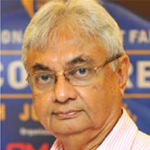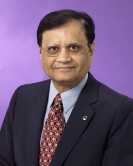
Sirinada Preechawitayakul
Co-Founder
Brand - Senada
The demand for fine tailoring details in clothes will be the next trend
Thailand-based fashion label Senada is known for marrying vintage-inspired detailing with modern trends for its collections. In a chat with Fibre2Fashion, Co-Founder Sirinada Preechawitayakul talks about the intricacies of the co-designing process with clients as well as the stringent quality control checks that Senada’s products undergo.
Fibre2Fashion: What inspired the launch of Senada in 1991?
Sirinada Preechawitayakul:
The founder of this company was my mother. 1991 was the year I was born and that inspired her to start the brand. Since at the time she had already started making baby clothes for me, she wanted to try to create something for other women as well.
F2F: What is the significance behind the name 'Senada Theory'?
SP:
Senada is derived from my name, Sirinada. But my mother wanted the brand’s name to be easier to pronounce since it is a Thai name, and therefore shortened it to Senada. Senada is the brand name that we use for our local ready-to-wear offerings and the name Senada Theory’ was used for our export line. My mother is a biochemist graduate who fell in love with the relationship between art and fashion, hence she added the word ‘Theory’ to the name. Today, we just use Senada as we have one line for both the local and international markets.
F2F: How would you define the vibe and aesthetic of your collections?
SP:
Senada always had hints of vintage allure, adapted to the modern fashion sensibilities of today. Our signature is strong femininity with aesthetics that bring together opposite or contrasting elements, but blend together seamlessly to create a new look. These contrasting elements include silhouettes, fabrics, and colours.
F2F: Could you share some insights into your creative process and the sources of inspiration for your designs?
SP:
The creative process often starts with natural shapes and forms that we see every day and developing key details from that. For example, crafting fabric flowers, drapes, weaving details, or even nature-inspired print. Once key details are set in place, the rest of the collection is gradually created.
F2F: As a designer, how have you seen the fashion industry evolve since you first started?
SP:
The fashion industry is ever-evolving. The world has become more open and people are more willing now to experiment with fashion in order to express themselves. Today we are also seeing more genderfluid designs and silhouettes as well as the move towards sustainability, which is what the brand has been continuously pursuing. So, everything is changing, not just about the trends, but also down to the materials and production process.
F2F: Can you walk us through the process of transforming a design concept into a finished product?
SP:
As mentioned previously, we start off with a key detail. Then we begin sourcing our materials. We focus on sourcing FSC-certified fabric and non-running textile in order to meet the benchmarks of our sustainable practices. After the materials are in place, we start designing piece-by-piece and make sure that the product is of the best quality and looks good—both on a mannequin and on a real human being—before it goes to the market.
F2F: What unique perspective does your brand bring to global fashion trends?
SP:
Since we are a Thai brand, there is a big part of our art and culture which is translated into our designs, which then contributes to global fashion trends. The use of local colours and incorporating local craftsmanship or even fabric such as Thai silk is something that has always been appreciated on an international level.
F2F: How do you incorporate handcrafted details into your designs?
SP:
We first became inspired by handcrafted details that are used in other products, such as braiding on woven baskets or making flower garlands called ‘malai’. We then tried to apply the same technique to our designs. We also have done embroidery work on the Thai ‘sabai’ national costume and were inspired to create crystal embellishments on our products as well. So, there is a variety of handcrafted details that we have explored.
F2F: Can you discuss the philosophy behind Senada and what distinguishes it from other brands in the industry?
SP:
We often get to hear that ‘Fashion is an expression of one’s lifestyle’. The philosophy behind this brand is that fashion is not only about certain trends or looks, but is about a whole range of attitudes, moods, and personalities. Therefore, we always offer a variety of materials, colours, and silhouettes and present them in a way that customers can easily mix and match with their jeans or whichever wardrobe staple they own in order to portray the best version of themselves.
F2F: How does your brand approach custom-made services, and what is your process for co-designing with clients?
SP:
Custom-made services are offered for our VIP members only. The process of co-designing with clients comes from their inspiration and concept. Majority of the time, it is for a special occasion, so we need to be briefed not only on what they have in mind in terms of mood and colour, but what is also the function and practicality of the outfit that will be designed. Everything after that is done together starting from material selection and altering the samples until the final fitting.
F2F: What measures do you take to ensure quality control throughout the design and production process?
SP:
We take quality control very seriously; from having a reputable partner that we can rely on in terms of quality checking all materials before they have been imported to quality checking by the in-house team as well at every stage. We check all the material that gets imported in, we QC the line while seamstresses are carrying out production, and we QC when the product is completed before it reaches the store. If any mishaps happen along the way during delivery, our sales personnel will make sure all products received at the storefront are in 100 per cent perfect condition before being displayed and sold to customers.
F2F: Can you suggest five fashion trends you foresee for 2023-2024?
SP:
Street style is still going to be around. This means that high street fashion will always be desired for its easy athleisure look. Tailoring will be back. Right now, as fast fashion brands are moving quickly, the demand for fine tailoring details in clothes will be the next trend. Quiet luxury will become more popular. People will go for a more subtle, minimal look with no logos, but made of the finest materials. Gender fluidity will become even louder as everyone continues to promote gender equality and inclusivity. Collaborations will become the norm as brands partner with one another and offer limited products.
F2F: What is your vision for the future of your brand?
SP:
We will continue to practice sustainability and expand our market on an international level. We now have showrooms based in Paris and Shanghai. We will focus on and invest in capturing our next big market—China.
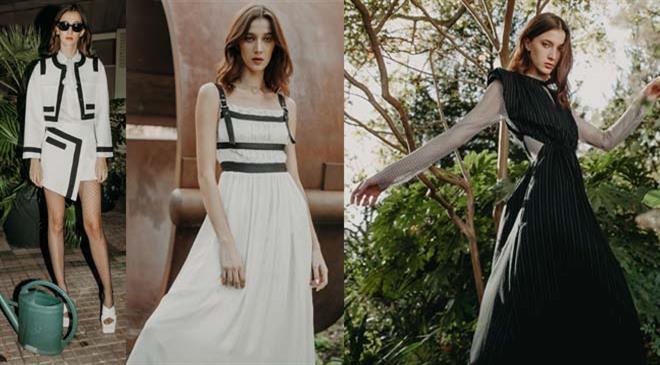
Arun Sirdeshmukh
Bill D’Arienzo
Aseem Prakash
Fanny Vermandel
Abhay Gupta
Rahul Mehta
Rahul Mehta
Gabi Seligsohn
Pradip Mehta
Anurag Batra


20230103183907.png)
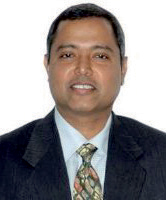

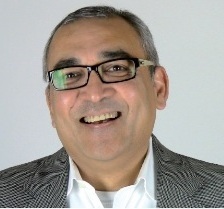


_8.JPG)
